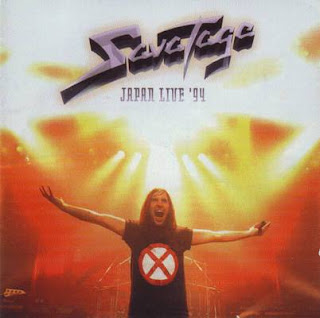Style: instrumental, funk-rock, jazz-rock
Label: Magna Carta
Year: 2001
Home: n/a (disbanded)
Members: Alex Skolnick ~ guitars
Michael Manring ~ bass
Tim "Herb" Alexander ~ drums
While the outcomes don't always interest me as sometimes I feel they careen out of focus & are often one-off affairs that need more developing, I do greatly respect former Testament/Savatage guitarist Alex Skolnick who not not just refuses to sit in any box but destroy it completely more times then not ... oh, he's also a nice guy too having met him once. How many thrash guitarists do you know who have checked themselves into jazz guitar college courses? Well, there's been a few, but none have pursued a degree like Skolnick & none have gone on to make as many non-thrash albums albums as thrash ones. Though, like I said, I loved to see him develop a few more facets of his sound out over time versus a bunch of one-off 'here's a funk album, here's a jazz album.' AD is one of his many instrumental projects that brings together jazz funk & rock in a weird quasi-rock mix that might just be the highlight of Skolnick's non-thrash career. It's also one of the few developed ones, the trio having done three albums together, & while it may dip in the focus at times it gels musically in a way that makes up for that far more than Skolnick's other projects. AD includes experimental drummer Tim "Herb" Alexander formerly of Primus & master jazz bassist Michael Manring, on 10 string bass, who studied with Jaco Pastorius & has becomes the top session man for Windham Hill Records. They've done two albums together, this is their more focused second, & Alexander & Skolnick where on Manring's solo album Thonk & Manring & Skolnick where together in the cop-themed funk band Skol-Patrol. The time together shows. The problem I have with some of Skolnick's forays is that its ultimately about a lot of shredding & riffing, but in different styles, here he might lay back more than he ever has for his truest fusion jazz release turning in major quasi-rock riffs alongside light turns of phrase & giving the other boys lots of time. The outcome is a true group effort. Perhaps intentionally or not, it hearkens a bit of a slow moody Primus though this is because of Manring not Alexander. Alexander turns in atmospheric jazz drumming, I think of the late Paul Motion of the Bill Evans Trio, versus straight rock drumming. Alexander rides the wave of the beat instead of forcing it & cluttering it. Manring actually has one of those thick gritty sounds, perhaps Tony Levin might be a comparison for rockers & certainly Jaco's influence comes through, that's everything but what one expects to hear from a bass & you'll be shocked from his first notes. He creates this thick wall of sound that's often as upfront as Skolnick. Both AD albums are masterpieces of experimental jazz-funk-rock. Lots of space between the notes just the way I like them & certainly not anything you've come to expect from Skolnick, so two bonuses, plus AD introduced me to a new bass player so three bonuses. Folks listening will also be amazed by Manring & Alexander to the point where Skolnick is the least of your focus at time, as I said, true group effort. This is the album Skolnick went to school to make without a doubt. Sometimes soft & atmospheric, sometimes fast & furious, sometimes a bit rock, sometimes a bit jazz or funk. Skolnick fans shouldn't miss this for anything. Both albums are great, but I prefer this second one as it feels more group-cohesive & less experimental.






















